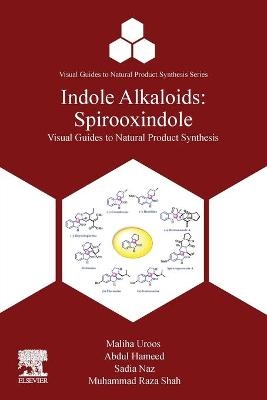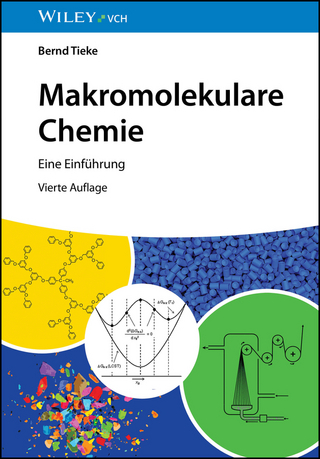
Indole Alkaloids
Elsevier - Health Sciences Division (Verlag)
978-0-323-91674-5 (ISBN)
Visual layouts provide quick-and- easy access to developed synthetic routes towards the targeted spirooxindoles.
Dr. Maliha Uroos completed her PhD in synthetic organic chemistry in 2012 from the University of Nottingham under HEC Faculty Development Scholarship. She was awarded EPSRC post-doctoral fellowship (2012-13) at the University of Nottingham, UK. She was appointed Lecturer at University of the Punjab in 2007 and currently working as Associate Professor (2020 to date) and Director, Centre for Research Ionic Liquid, School of Chemistry, University of the Punjab. Her main focus is synthetic organic chemistry and research interests include synthesis and applications of ionic liquids, synthesis of biologically active molecules, sustainable energy production and development of green processes for setting up bio-refinery from agricultural waste. Dr. Abdul Hameed Dr. Abdul Hameed completed his PhD in Organic Chemistry from The University of Nottingham, UK. He worked in the area of natural products synthesis. He was a post-doc fellow in Max-Planck Institut für Polymerforschung, Germany in synthetic division headed by Prof. Dr. Klaus Müllen. There he worked on the functionalization of adenylyl cyclsase inhibitors via chemical methods to conjugate them with monoclonal antibody to study their biological potential in Regulatory T cells (Treg). His current research interests are including the development of novel methodologies, their utilization in natural products synthesis, the synthesis heterocyclic compound compounds to evaluate their biological potential. Sadia Naz is currently a PhD student at Centre for Research Ionic Liquid, School of Chemistry, University of the Punjab (2018 to onwards) and is working as research assistant in HEC NRPU project with Dr. Maliha Uroos (2019 to onwards). She has publications in international journals and presented her work in various international and national conferences. Her research interests include synthetic organic chemistry, ionic liquids, conversion of agricultural waste materials into valuable platform chemicals. Muhammad Raza Shah is a full professor at the International Center for Chemical and Biological Sciences, HEJ Research Institute of Chemistry, University of Karachi, Pakistan. He is also the Head of the Center for Bioequivalence Studies and Clinical Research. He is a recipient of several awards, including the Tamgha-i-Imtiaz Award from the President of Pakistan, the Salam Prize, the Professor Atta ur Rahman Gold Medal, and the Dr M Raziuddin Siddiqi Prize, by the Pakistan Academy of Sciences, for scientists under 40 years of age, in the field of chemistry. Professor Shah has authored six books and edited four books, in addition to contributing over 350 peer-reviewed journal papers. One of his authored books was declared as best book of 2017 by the Government of Pakistan’s Higher Education Commission.
1. Indole alkaloids; Spirooxindoles
2. Brevianamide A and B
3. Citrinadin A and B
4. Coerulescine and Horsfiline
5. (±)-Elacomine and (±)-Isoelacomine
6. Gelsemine
7. Paraherquamide A and B
8. Rynchophylline and Isorynchophylline
9. Spirotryprostatin A
10. (—)-Spirotryprostatin B
11. Strychnofoline
| Erscheinungsdatum | 04.01.2022 |
|---|---|
| Reihe/Serie | Visual Guides to Natural Product Synthesis Series |
| Verlagsort | Philadelphia |
| Sprache | englisch |
| Maße | 152 x 229 mm |
| Gewicht | 390 g |
| Themenwelt | Naturwissenschaften ► Chemie ► Organische Chemie |
| ISBN-10 | 0-323-91674-0 / 0323916740 |
| ISBN-13 | 978-0-323-91674-5 / 9780323916745 |
| Zustand | Neuware |
| Informationen gemäß Produktsicherheitsverordnung (GPSR) | |
| Haben Sie eine Frage zum Produkt? |
aus dem Bereich


